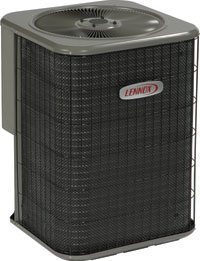 As summer draws close, many homeowners and business owners contemplate turning off their air conditioning systems in anticipation of cooler temperatures. However, before doing so, you must conduct thorough end-of-summer maintenance on your system to ensure its continued energy efficiency and reliability. This blog post will explore top tips for successful end-of-summer AC upkeep and why it’s important – all while highlighting how Pasterkamp Heating & Air Conditioning can help!
As summer draws close, many homeowners and business owners contemplate turning off their air conditioning systems in anticipation of cooler temperatures. However, before doing so, you must conduct thorough end-of-summer maintenance on your system to ensure its continued energy efficiency and reliability. This blog post will explore top tips for successful end-of-summer AC upkeep and why it’s important – all while highlighting how Pasterkamp Heating & Air Conditioning can help!
Get A Professional Tune-Up Today
The summer season can take a toll on your air conditioning system, leaving it needing maintenance before the cooler months arrive. A professional tune-up ensures that all components function efficiently and effectively throughout this process. This involves examining every aspect of your AC unit while cleaning coils, checking refrigerant levels, and calibrating thermostats accordingly by experts who know what they’re doing best!
Change Your Air Filters Regularly
Air conditioning systems rely on air filters to keep incoming air clean and contaminant-free. However, if these filters become clogged or dirty, they can pose a problem for indoor air quality and overall system performance. Regularly replacing worn-out filters ensures that your AC unit operates at peak efficiency while improving the health of those inside by reducing exposure to pollutants like dust mites, pollen, mold spores, etc… Neglected filter maintenance leads not only to poorer air quality but also increased energy consumption due to decreased airflow through the system leading up costs over time.
Outdoor Unit Maintenance
As summer draws to a close, you mustn’t neglect your air conditioner outdoor unit. This component is exposed daily to dust, dirt, and debris, which can accumulate over time, leading to reduced performance levels if left unchecked during the end-of-season maintenance procedures. To avoid this issue, cleaning the exterior thoroughly and removing any obstructions from around it will help ensure optimal efficiency throughout the autumn months ahead.
Air Duct Leak Check
Air ducts are essential components of any HVAC system. However, over time, they may develop leaks that can cause significant problems for homeowners and businesses – namely, higher energy bills due to inefficiencies within the system. To prevent these issues from escalating into more costly repairs or even replacement costs altogether, scheduling regular inspections with a professional specializing in air duct maintenance services is critical. This will help detect potential leaks early so you can take proactive measures before things get out of hand!
Upgrade Your System
If your air conditioning system has been around for over a decade, it’s time to consider an upgrade. By investing in a more energy-efficient model, you’ll see lower utility bills and enjoy improved indoor comfort levels throughout the year. Don’t delay – take action today!
Maintaining your air conditioning system at the end of summer is crucial for ensuring its reliability and efficiency. Regular maintenance will extend its lifespan and lower energy bills while improving indoor air quality. If you need professional assistance with this task, do not hesitate to contact Pasterkamp Heating & Air Conditioning – experts in repairing, installing, or maintaining AC systems that prioritize exceptional customer service alongside high-quality workmanship. Call us today so we can schedule an appointment for your end-of-summer maintenance!
